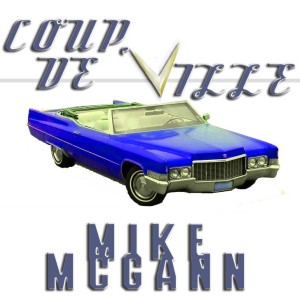Is willy-nilly cutting any more responsible than out of control spending?
By Mike McGann, Editor, UnionvilleTimes.com
 Are taxes evil? Is government evil? Are those who serve in government evil by extension?
Are taxes evil? Is government evil? Are those who serve in government evil by extension?
For some time now, the case has been made that taxes, government and government officials are wretched things. Taxes and government should never, ever be increased and cut when possible.
Now, keep in mind this differs from wanting the absolute best value per dollar in terms of efficiency and efficacy. If you know anyone who supports the concept of wasting money, well, I’m pretty sure they’d have a very short public life. And yeah, there are those in elected office who have at times seen the public treasury as their own ATM machine — a quick source of funds for themselves and their cronies.
But it’s fair to say that most folks in public office want to spend responsibly and are honest, well-meaning folks. Most won’t say it privately, especially in a time when tax revenue is down, but they tend to be more than a little frustrated with taxpayers who seem to want more services and lower taxes and then get angry when magically that doesn’t happen.
So when did we transition from a society that “pays its fair share” to “I got mine, the heck with you?”
It didn’t happen overnight, certainly, and probably came from the top down. If the wealthiest people in society don’t feel much of an obligation to contribute to the common welfare that “trickles down” to everyone else. It didn’t help that government, especially at the federal level, hasn’t been careful with its money for something like two generations.
And while I’m not here to have a broad debate about federal taxes, I understand why people think those taxes should be kept as low as possible — in part, because living where we do, each of us is a lot less likely to benefit from money sent to Harrisburg or Washington, D.C.
I think some dialog on local taxes, the money we all pay to fund schools, our local towns and county government merits discussion, as this is the money that impacts our lives most directly. State and federal taxes, to be frank, don’t come back in a fair ratio (you can thank Greene County and Mississippi — just a few places that get much more in state and federal services then they pay in taxes), but money paid here, tends to stay here.
Just for fun, not long ago, I calculated the approximate cost of educating my kids — and to be fair, one of my stepsons (I have two stepsons, but his dad also pays real estate taxes in the Unionville area, so fairness requires allowing for that). Assuming my current fifth graders graduate on time in 2019 from Unionville High School, and assuming a constant dollar cost of about $15,000 per student, per year, that amounts to a total of $585,000 for three kids to go kindergarten through 12th grade.
I don’t want to hazard a guess of how old my wife and I will have to be — and continue living in Unionville — to pay that off in taxes. Assume safely, should we be lucky enough to live that long, it might not be until after our great grandkids graduate from high school before we’ll get in the ballpark.
Unfortunately, I see a lot of people who take the attitude of “my kids are out, I did my part.” Well, no, you didn’t. These kinds of taxes aren’t really taxes, but loans to be paid off from past generations to future generations. And even if you never had kids, you benefit from a better educated society, workers and the folks who will make that discovery that makes your lives better.
It’s a shared responsibility — much like paving our roads, or policing our streets, or clearing snow. A burden shared by many hands is made light, so goes the old proverb. Together, we are more powerful and stronger than as individuals.
Somehow, we’ve confused frustration over waste to being unwilling to keep our shared debt to society. Few things are as uniquely American as the sense of shared society — whether it be an Amish barn raising, the work of volunteers to fill local food banks or just neighbors helping one another in a time of need.
Just as we must balance the needs of individuals, we must also remember the greater needs of the community in general and be wary of the dangers of unraveling the ties that bind us together, either out of greed, narrowmindedness or just a lack of perspective.
Just as the first instinct shouldn’t be to blindly raise taxes without consideration of the impact on those who can least afford it, there shouldn’t be an immediate reflex to cut or maintain tax rates without fully understanding the impact of such actions. All too often, the mantra has been “cut, cut, cut” without consideration of the impact — a sensibility no more valid or responsible than “spend, spend, spend” would be.
Just something to consider as the discussion continues.
* * *
Congratulations and thanks to Bruce Vosburgh on his announcement he will retire after two decades as principal of Patton Middle School. To my mind, there is no more challenging age than grades six to eight and Bruce has spent more than 35 years working with kids of Unionville.
Undoubtedly, he’ll enjoy his retirement but he will clearly be missed by the Unionville community.
* * *
Students across the Unionville-Chadds Ford School District are embracing a day of service Monday in celebration of Martin Luther King Jr. Day — engaging in various projects to give back to the community. From making soup at Hillendale, to quilting at Pocopson, Patton students cleaning up Anson Nixon Park or Unionville High School students volunteering at the Kennett Senior Center (and that’s just a small sample of the activities), students will be spending their own free time to make their community a better place.
Kudos to the students, faculty and family members involved in these worthy activities.






